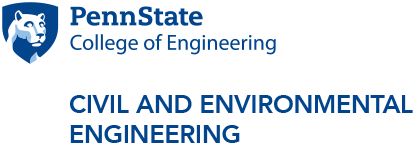
One-year Master of Engineering Degree
Our one-year professional master’s degree programs will give you a strong foundation in civil or environmental engineering and prepare you to apply your skills across a broad range of disciplines in both academia and industry.
If you wish to develop and expand your expertise in what is continually ranked one of the top professions in the country, you will have ample opportunity to do so here. Our first-rate faculty collectively possess a deep and broad range of knowledge that provides an ideal environment for interdisciplinary work.
Whether your passion calls you to start your own business, pursue the next ground-breaking innovation, or help solve a humanitarian crisis, this degree program can take you closer to your goals.
One-year master of engineering program options include:
- Civil Engineering: Available specializations include Infrastructure; Transportation Systems; and Water and Environment
- Environmental Engineering
Our one-year master’s degree programs:
- Can be completed in two semesters
- Position you for competitive, higher-level engineering careers
- Include an interdisciplinary capstone course
Ideal candidates should possess a bachelor’s degree from an accredited institution. Students in engineering, physical sciences,or mathematics with a 3.00 grade-point average (on a 4.00 scale) may be considered for admission. Students without a bachelor’s degree in engineering will be admitted on a provisional basis pending successful completion of entrance course requirements and will not be able to complete the degree in two semesters.
Current or former Penn State engineering students with a GPA of 3.3 or higher will be admitted without having to take the GRE. However, all other Scholarship and Research Integrity (SARI) requirements must be met.
Course Requirements
Details for the new professional Masters Degrees in Civil Engineering and Environmental Engineering are provided, respectively, in Tables 1 and 2. All M.Eng. degrees will require 31 credits (400-level and above), a minimum of 18 credits at the 500-level, and a minimum of 12 credits courses with a C E prefix. Students will be required to complete a one-credit colloquium (CE 590) as part of SARI training. At least 20 credits must be earned at an established graduate campus of the University.
| Specialization | Core Courses | M.Eng. Required Courses | Elective Courses |
|---|---|---|---|
| Infrastructure |
Complete 3 of 6: |
CE 535: Integrated Project Management for Civil Engineers CE 590: Colloquium |
Several from C E, E MCH, and STAT |
| Transportation Systems | Complete 3 of 3: CE 523: Analysis of Transportation Demand CE 525: Transportation Operations CE 528: Transportation Safety Analysis |
CE 535: Integrated Project Management for Civil Engineers CE 590: Colloquium |
Several from C E, I E, and STAT |
| Water and Environment | Complete 2 of 2: CE 561: Surface Hydrology CE 570: Environmental Aquatic Chemistry |
CE 535: Integrated Project Management for Civil Engineers CE 590: Colloquium |
Several from C E, GEOSC, MATH, and METEO |
| Core Courses | M.Eng Required Courses | Elective Courses |
|---|---|---|
| Complete 3 of 6: CE 479: Environmental Microbiology CE 570: Environmental Aquatic Chemistry CE 571: Physical-Chemical Treatment Processes CE 572: Biological Treatment Processes CE 573: Environmental Organic Chemistry CE 576: Environmental Transport Processes |
CE 535: Integrated Project Management for Civil Engineers CE 590: Colloquium |
Any additional core course, several from CH E, CHEM, GEOSC, ME and SOILS |
Cost of tuition can be found here.
If you have additional questions, please contact us.
The application for all graduate programs can be found here.





